Exploring Shapes in Photography: AAP Magazine 42 Showcases the Beauty of Form
Categories: Art | Beauty | Design and Architecture | Photo project | Photo School
By Vika https://pictolic.com/article/exploring-shapes-in-photography-aap-magazine-42-showcases-the-beauty-of-form.htmlWe're delighted to reveal the names of the 25 talented photographers who won AAP Magazine #42: Shapes
For the 42nd edition of AAP Magazine, we invited photographers to explore the theme of Shapes as a crucial element of visual storytelling and composition. From abstract forms to intricate architectural details, we were looking for submissions that highlighted the power of shape and form in photography, whether used to create pure visual impact or to enhance a deeper narrative.
The mastery of shape is central to the art of photography. It can transform everyday scenes into stunning visual masterpieces, guiding the viewer's eye and evoking emotion. Whether through geometric patterns, organic curves, or the clever use of positive and negative space, shapes play a pivotal role in enhancing the overall aesthetic and mood of an image.
This year, we proudly present 25 exceptional photographers whose work embodies the diverse and creative interpretations of shape. Hailing from 14 different countries across 4 continents, their photographs span a wide range of styles, including architecture, landscape, street, still life, and abstraction. Each artist brings a unique perspective and technique, demonstrating the endless possibilities that arise when composition and form take center stage.
25 PHOTOS
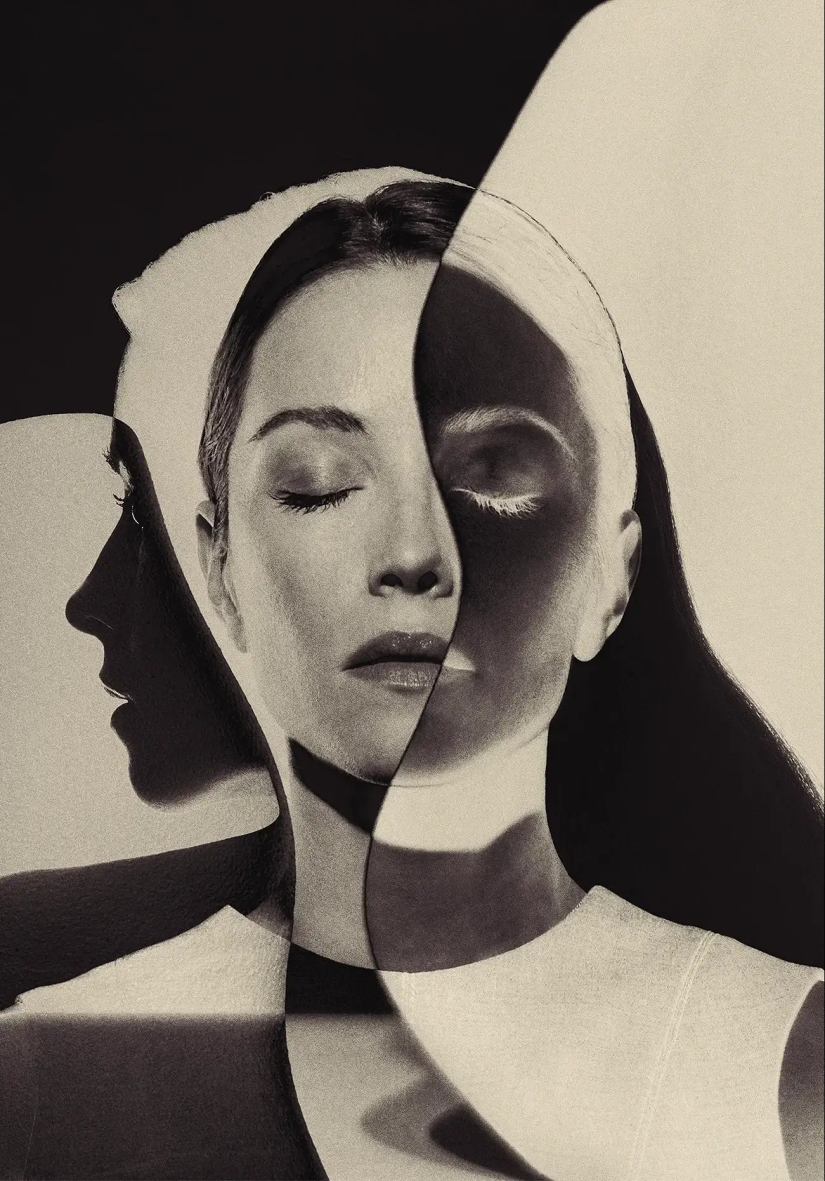
1. The Winner of AAP Magazine 42 Shapes is Sander Vos (Netherlands) with the project Interpolation
'Interpolation' creates surreal worlds that challenge our visual perception. It’s not documenting reality as captured directly from the camera but using photography to deconstruct and ultimately, to create new realities through layering and image manipulation. A fragment of a face and a shard of a geometric pattern merge into one. Together, they become the building blocks for a newly constructed visual world. One that evokes a sense of nostalgia for a dreamlike future.
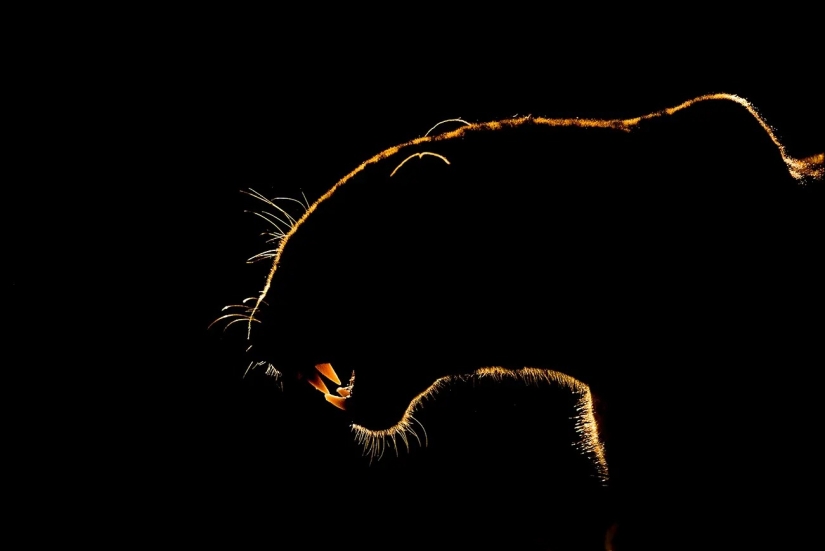
2. The second-place winner is Bence Mate (Hungary) with the image White Fang
This leopard was feeding on the carcass of a wildebeest, which we had been observing and photographing from quite a close distance. At one point, a hyena appeared in the area and made the leopard mad with its distinctive laughing sound and pacing back and forth. The big cat would not give up his prey easily: in a threatening posture, baring his fangs and snorting, he proved to the hyena that he was the stronger one. This was enough until the hyena was joined by a companion, and then another. The leopard was finally outnumbered and chased up the tree, losing its prey.
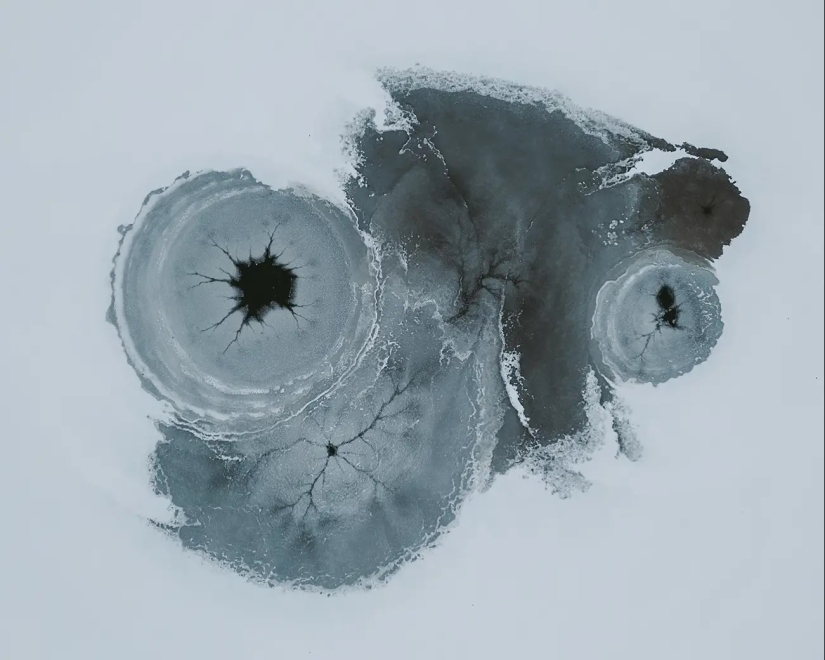
3. The Third Place Winner is Jakub Wencek (Poland) with the project Frozen Ponds in the Barycz Valley
My name is Jakub Wencek and I am a forester and nature photographer. Nature photography has been my passion since I remember. I love to take photographs of the forest and nature because, at this particular moment, I'm often in awe of all the secrets it has within it. Taking photos of nature I would like to invite you on a journey to my forest, which shows me its secrets very often... You can find stories closed in frames in my photos. You can see there the eternal fight between light and shadow.
Every scene tells us about a different story, which happened. All my photos, which are placed here, are unique because they are a record of a very short, little moment that will never happen again.
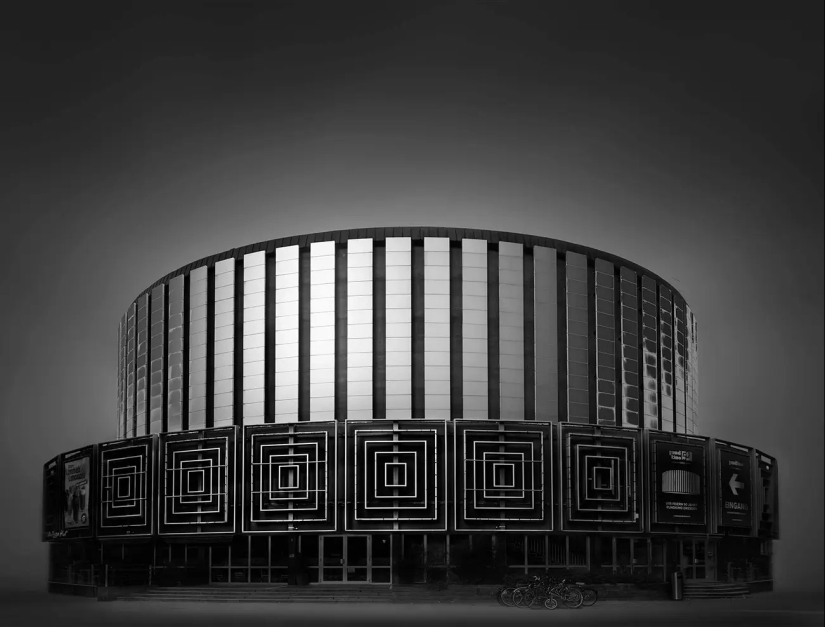
4. Merit Award's Gallery
Jens Winkler (Germany)
This building is called Rundkino (literally: round cinema) and is one of the many remarkable buildings in the city of Dresden, Germany. It was built in 1972 and has indeed been serving as a cinema almost continuously since then.
This series focuses on the interpretation of modern architecture. I am trying to find my way of expressing the essence of these buildings and at the same time create beautiful, intriguing images. I shoot architecture wherever I am, might be in well-known places like the City of Arts and Sciences in Valencia, but I also like to create an unusual view of less-known buildings.
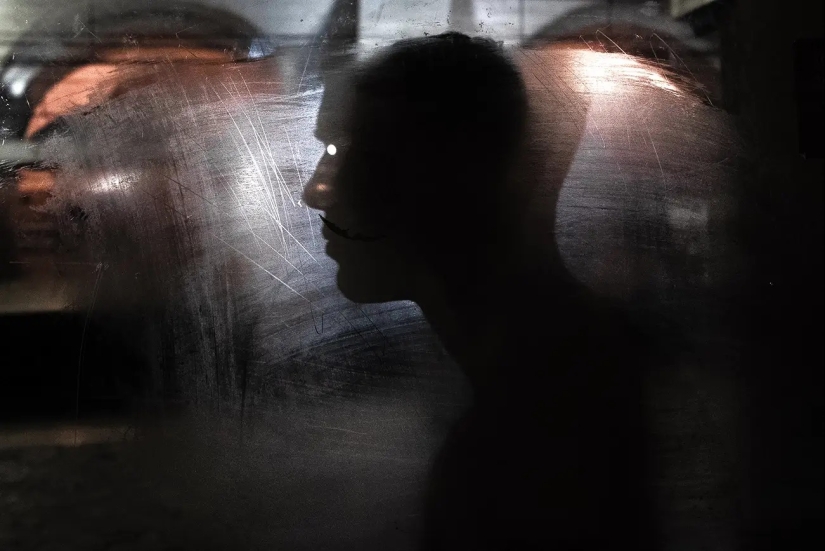
5. Andrea Finocchi (Italy)
The featured image is titled Someone and belongs to a series called Imaginarium. The photo portrays a human figure beyond the glass of the subway and its presence is enhanced by a point of light that seems to be an eye. The series tries to represent the daily routine of the city bizarrely by exploring new points of view.
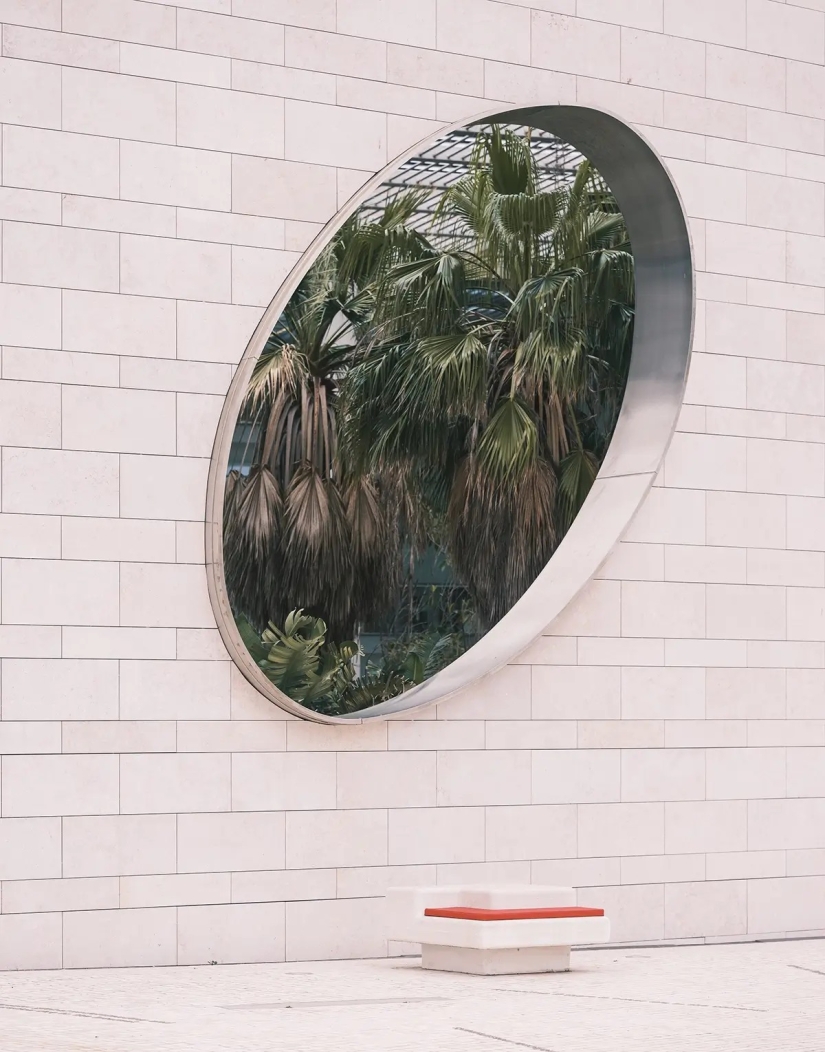
6. Florian Bouziges (France)
In this photo, a stark modernist building frames a small patch of green vegetation at its center, creating a striking contrast. The overcast sky and minimal human presence enhance the melancholic, surreal mood, highlighting the tension between architecture and nature.
In his Lisbon series, Florian Bouziges captures the city in a rare, melancholic mood, unlike the typical bright and sunny images often associated with Lisbon. Overcast skies and muted tones create a nostalgic, surreal atmosphere, where human presence is either absent or dwarfed by the architecture.
Through careful framing and post-production, he once again blurs the line between photography, CGI, and painting, offering a unique perspective on the city.
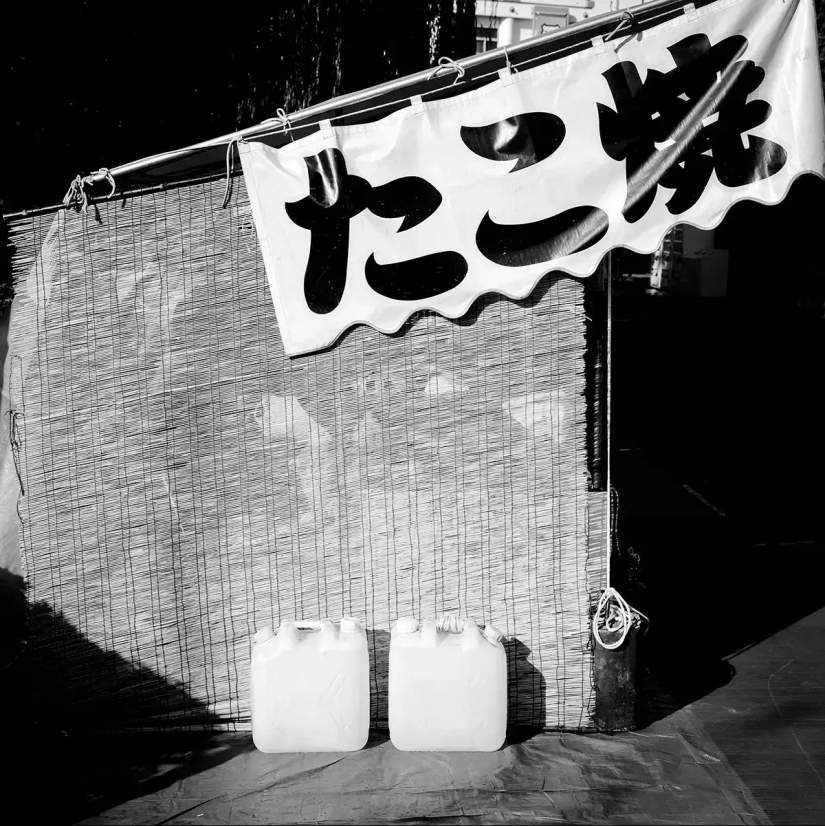
7. Dominique Philippe Bonnet (France)
I travel to Japan quite regularly, and I am fascinated by what the French semiologist Roland Barthes called 'The Empire of Signs.' This country inspires all photographers with its abundance of printed characters, the clean lines of its urban architecture as well as its rural landscapes, the shapes of its furniture, and its traditional patterns. This photograph is an example of these lines and forms that frequently collide in the daily life of the Japanese people.
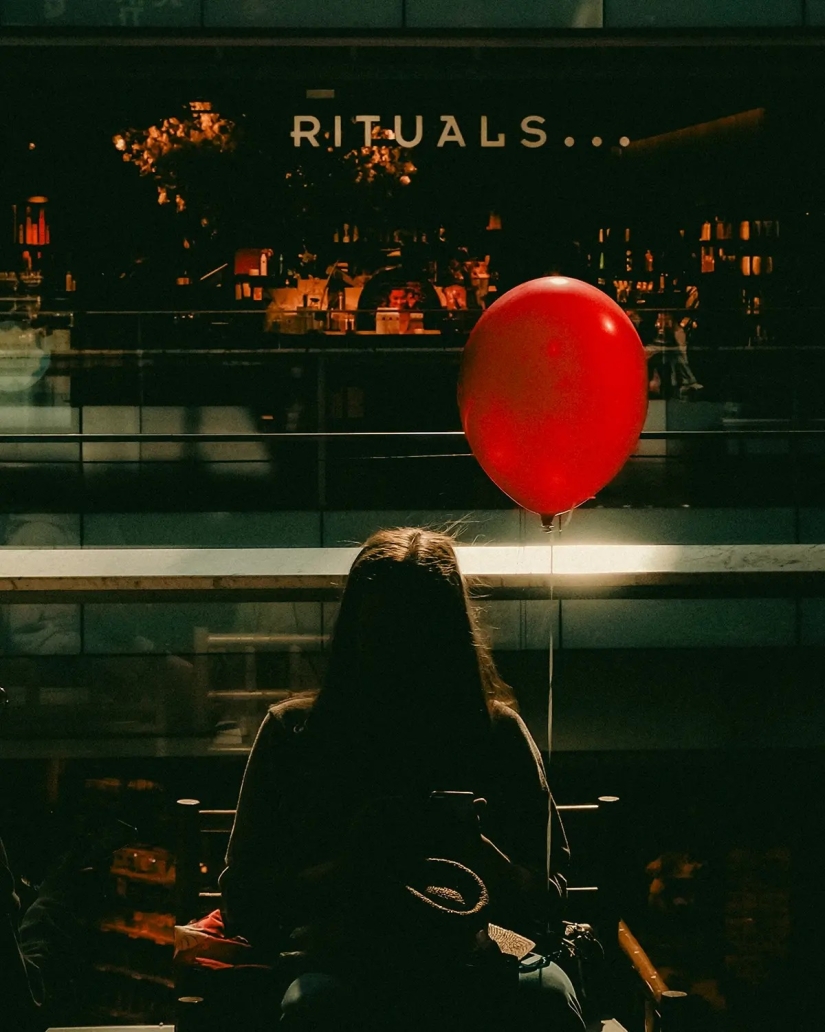
8. Tommi Viitala (Finland)
This street photo was taken in Helsinki, Finland in May 2024 at a local shopping mall. I was going for ice cream with my son until I noticed this lady with a red ball in the backlight and quickly decided to take a picture with my Fujifilm X100f camera.
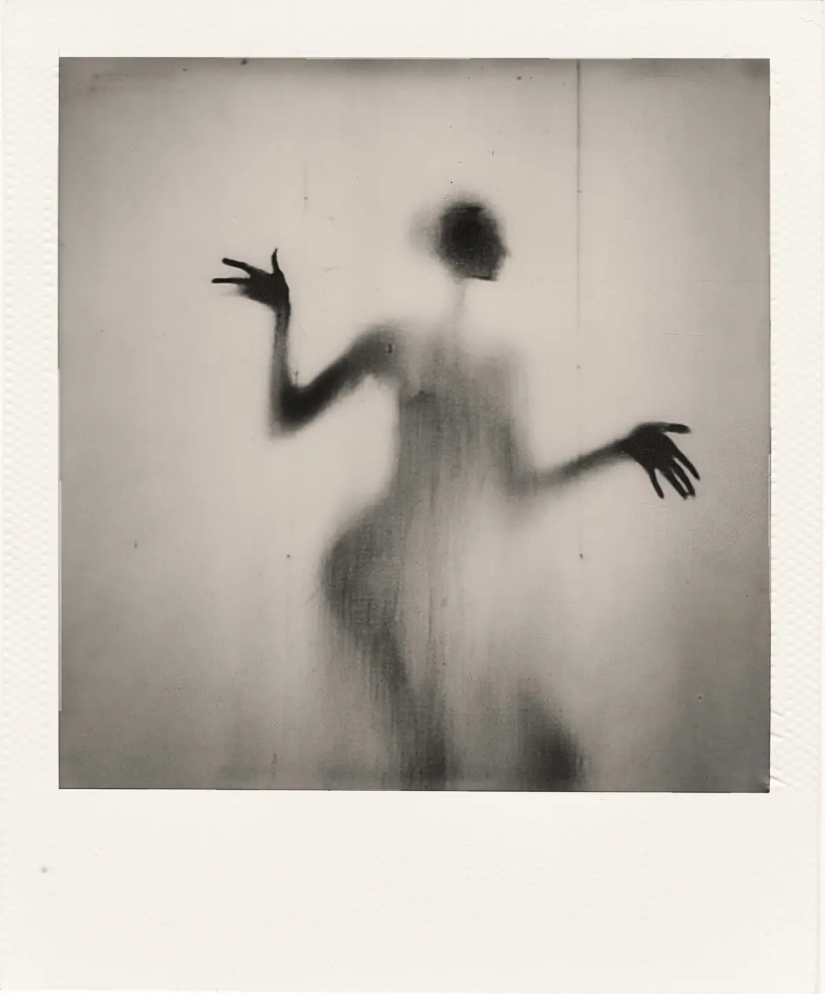
9. Martina Pavloska
The series is called Kage-onna, meaning shadow woman, and is inspired by Japanese spirits. Kage-Onna appears as a silhouette or shadow of a woman, often seen on shoji screens. Kage-onna make no sound nor do they interact with people. Kage-onna’s appearance as a mere shadow adds to her mystique and sense of the supernatural, emphasizing her connection to the spirit world and detachment from the physical world. Kage-onna often embodies a melancholic or tragic figure, reflecting themes of longing, unfulfilled desires, or unresolved matters from her past life.
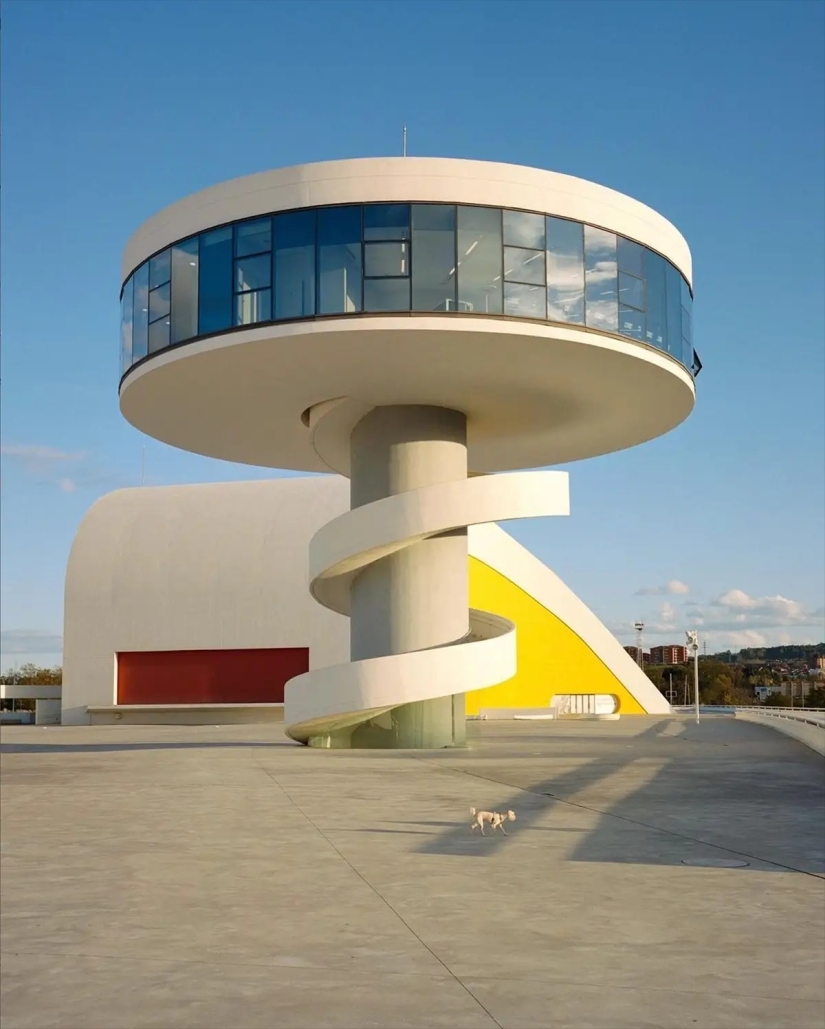
10. Fabien Dendiével (France)
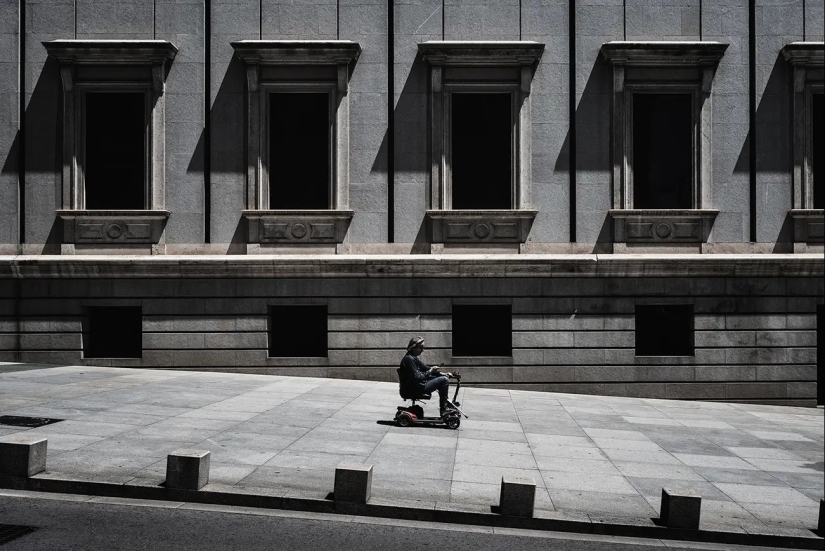
11. Javier Revilla (Spain)
This photograph belongs to the “People and Streets” project. They are images with a certain conceptual air that perfectly reflects my usual photographic aesthetic. These photographs describe small, simple (or not so simple) urban stories featuring anonymous characters that my wife and I encounter on the endless walks we take with the camera in hand in any city.
This photograph was taken spontaneously while walking through the streets of Madrid. The background with the blind windows belongs to the well-known building of the Congress of Deputies of Spain. At that moment the light was good enough to get some shadows with a good diagonal angle and thus outline the shapes of the neoclassical-style windows. All I had to do was wait for some “protagonist” to cross in front of this chosen background and mark the downward slope line that I think makes the image a rather curious combination of shapes, lines, and shadows.
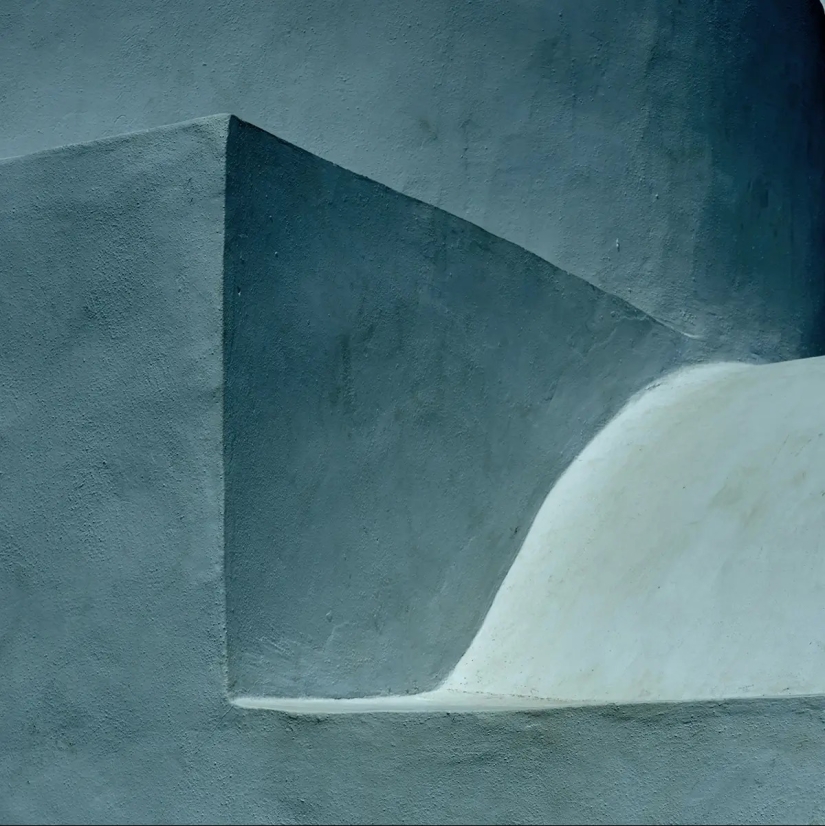
12. Vanias Xydas (Greece/France)
This series of photos was taken on the island of Sifnos in the Cyclades. The forms and shapes that surround us in a Cycladic environment, are of a purity and simplicity difficult to find elsewhere. These forms transformed by the light all day long, are the source of inspiration for creating this series.
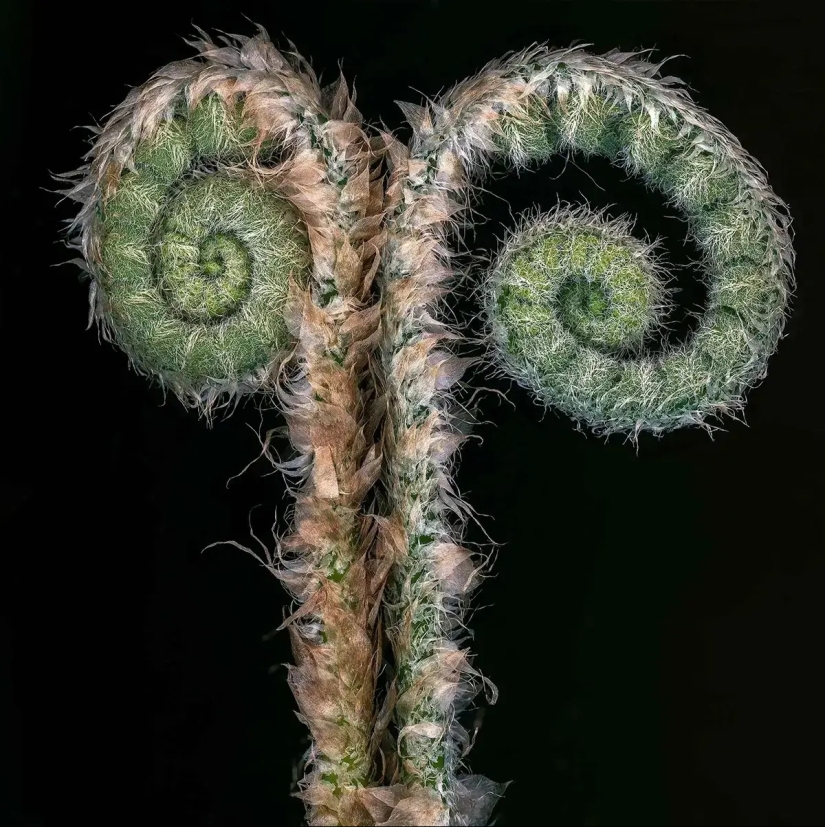
13. Patti Russotti (United States)
I am interested in how things fall apart, disintegrate, and then take on another form. These experiences bring me great joy. Nature has been the most generous and consistent provider for my investigation into states of change, entropy moving to negentropy, and JOY.
· Images in ‘sporadic form’ are created on a flatbed scanner, composed as one would on a large format analog camera back, upside down, and reversed.
· Images are output either on Kozo or fabric.
· Added wax (hot or cold), marks, color, and stitching are applied to the output making each piece unique.
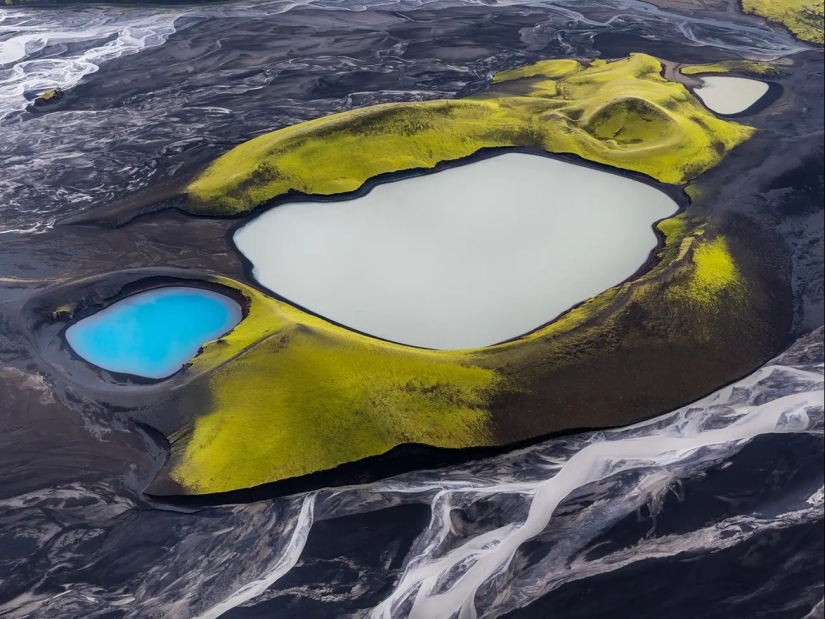
14. Thibault Gerbaldi (France)
Amidst the dark volcanic ash, three irregular sulfur ponds create a captivating contrast. The two smaller, nearly circular ponds flank a larger, less defined one, their vivid hues standing out against the stark, barren landscape. These natural formations, born from volcanic activity, showcase the dynamic interplay between order and chaos, capturing the raw, untamed beauty of Iceland’s volcanic terrain.
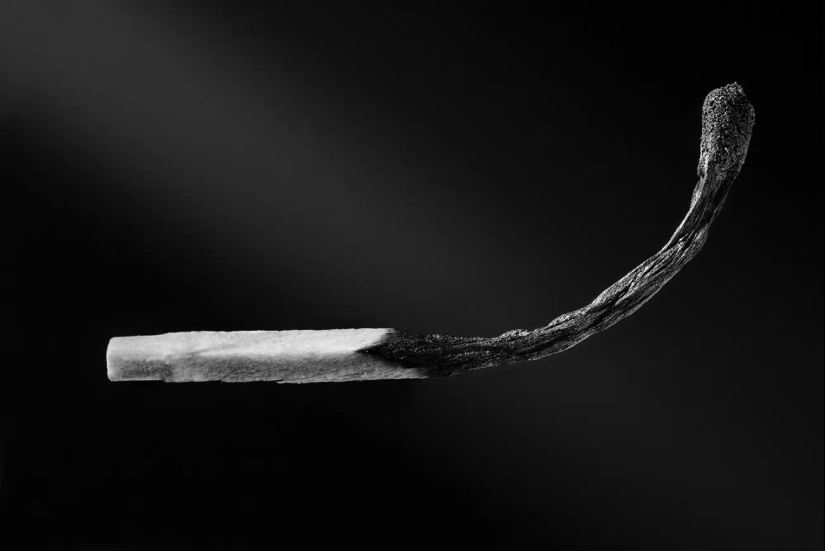
15. Umberto Romagnoli (Italy)
In the flesh and blood of everyone, the mother roars. (Cesare Pavese)
A metonymic object is truly like a bridge between two worlds, a thin connection that allows us to cross from one to the other. Like a secret language, it reveals hidden meanings, unveiling the truth that would otherwise remain hidden. The words themselves become arches, and we walk on them, (crossing the void between the concrete and the abstract). A metonymic object is like a solitary lighthouse standing on a cliff, guiding lost sailors through dark storms. The light of the lighthouse is not just a bright beam, but a message of hope, a promise of salvation, the guarantee of another possible life. Just as the lighthouse illuminates the path of travelers, the metonymic object reveals hidden paths, deep emotions, and hidden truths. It is the key to opening invisible doors, the golden thread that connects seemingly separate worlds. What you see is a mystery wrapped in an enigma, a Pandora's box that opens only when curiosity and intuition merge. The form, like a thin veil, conceals the unknown, but not completely. It is like a precious vinyl, with its hidden B-side, ready to reveal secret melodies. The flip side of the coin is a distorted reflection, a dancing shadow on the wall. It does not belong to the object itself, but to the soul that observes it. It is the latent meaning, the echo of memories, the submerged emotions. Just as the sun casts long shadows at sunset, we project veiled meanings onto everything we see. Reality crumbles, revealing invisible universes. The mind, like a dark theater, hosts performances of thoughts and interpretations. Because the dark side is the key to understanding the whole.
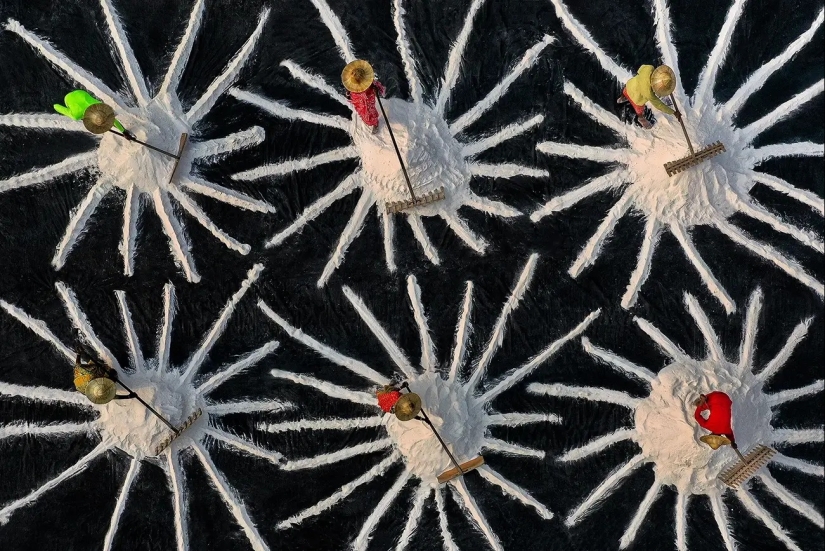
16. Saurabh Sirohiya (India)
An aerial drone shot was taken in the North 24 Parganas district in the Indian state of West Bengal, India. Salt is an essential component in our lives and diets. In this shot from the top, one can see some laborers working in a salt pan, where they arrange the salt in circular lines using the traditional method of drying salt. This allows for a slow evaporation under the scorching sun. The salt is collected in baskets and transported to respective sellers at the end of the day. It is indeed a physically demanding job.
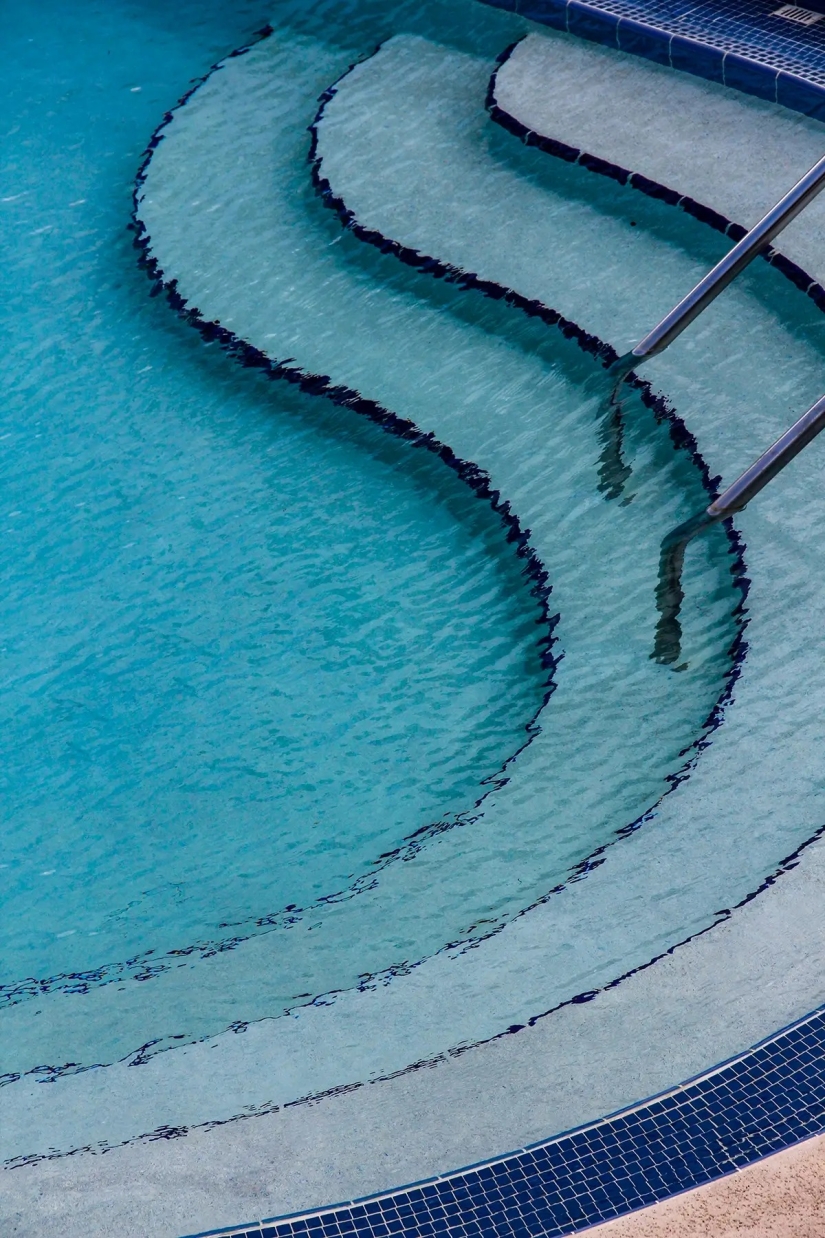
17. Anthony Iacuzzi (United States)
Pool Patterns is a mini-series that captures the flowing lines of a swimming pool located in Delray Beach, Florida. The subject matter of the feature image is primarily the beautifully designed steps leading in and out of the pool. Secondarily, the image captures the interesting surface texture of the water which was created by the rippling effect of the wind.
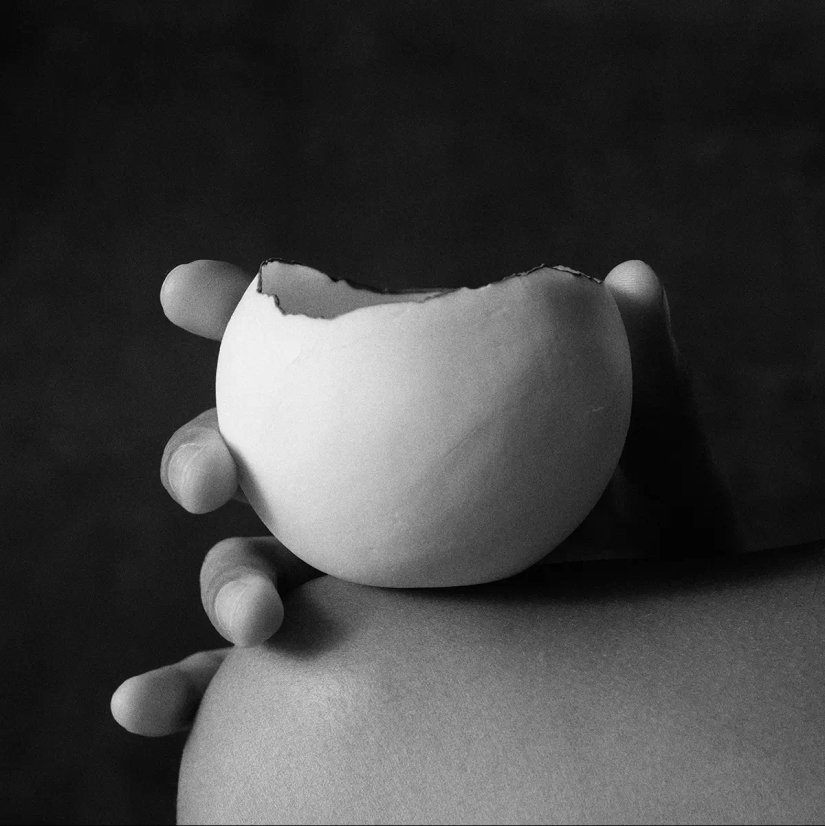
18. Thomas Rumprath (Germany)
This series explores the delicate interplay between the human body, nature, and objects. The photographs focus on fragments of the human form - hands, legs, and facial features - paired with organic elements such as flowers and stones, as well as objects of artisanal craftsmanship. The minimalist compositions emphasize the contrast between softness and strength, the fragility of life, and the innate connection between humans and nature.
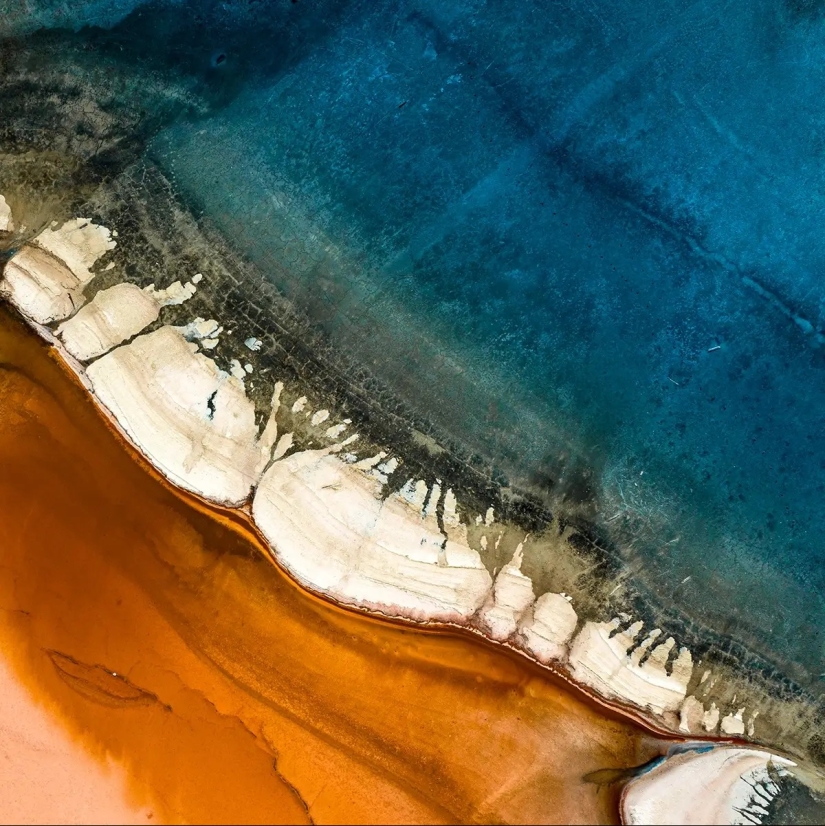
19. Peter Harlow (Australia)
The dried-up lake beds in the Mallee region of Victoria, Australia, present an almost infinite number of abstract photographic opportunities. Each season and year the colors change - from bright pinks and pale beiges and yellows through to richer, deeper colors like ochre and apricot. This image, captured less than 100 feet above the surface, is part of a series of photographs taken in early 2024 in the Mystic Park area of Victoria.
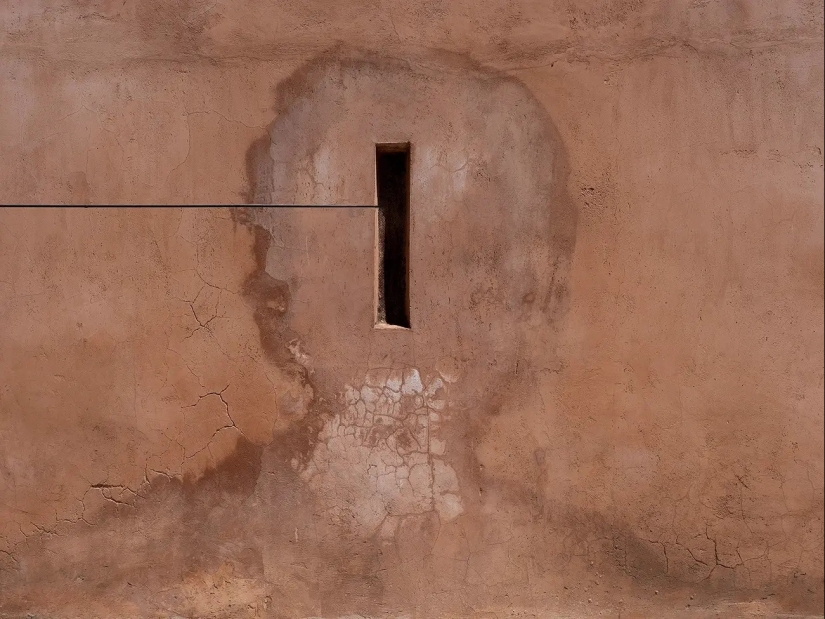
20. Klaus Lenzen (Germany)
Tuscany is known for its beautiful landscapes, but also its impressive historic cities. These towns are often characterized by their narrow streets and colorful façades. On these façades, you can discover wires that seem to have made their way. In search of the shortest route, overcoming obstacles, or in geometric arrangements, they form bizarre shapes and thus create their works of art.
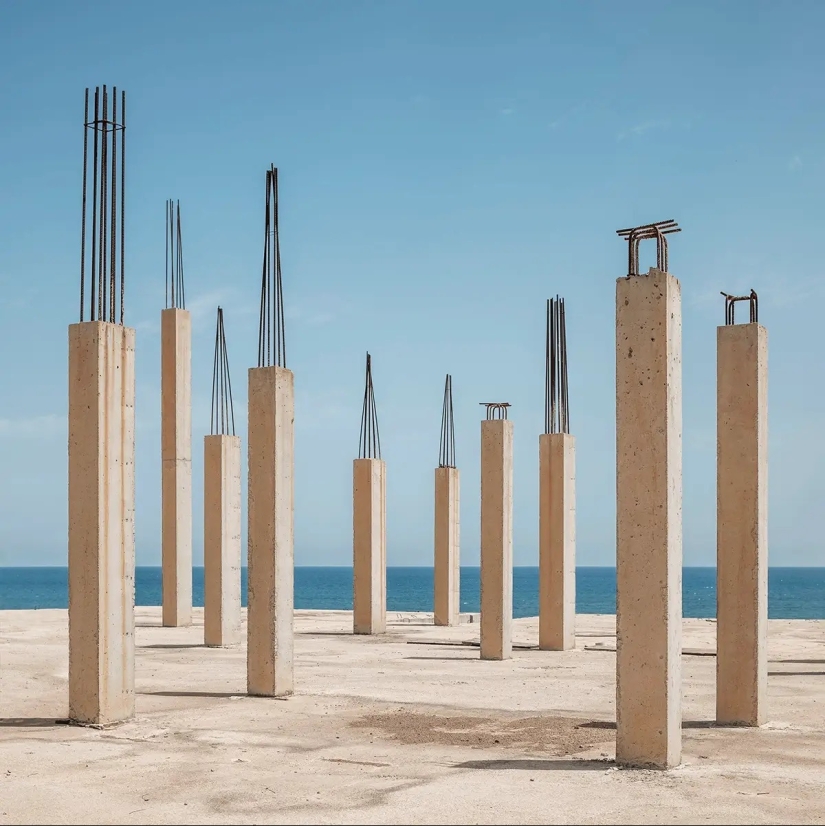
21. Pol Viladoms (Spain)
Since the existence of humanity, architecture has served as a refuge for hundreds of generations. The landscape has been the object of man’s conquest, mainly to protect himself from its inclemencies.
What began as a necessity has evolved into a lucrative business, causing the construction of land and saturating an already collapsed market. Places that expired before their inauguration, buildings that were never finished and never fulfilled their function of sheltering anyone.
A physical legacy in the form of constructed realities and transformed spaces that we, and the generations to come, will have to deal with for many decades to come.
The presented image, sober and dreamlike, shows us a contemporary ruin on the shores of the Mediterranean; a testimony unfortunately too recurrent in this territory. Its incomplete and tragic state acts as a reminder marking the place and replacing an always incomplete and fleeting memory.
A structure turned into a monument of the limited powers of mortals.
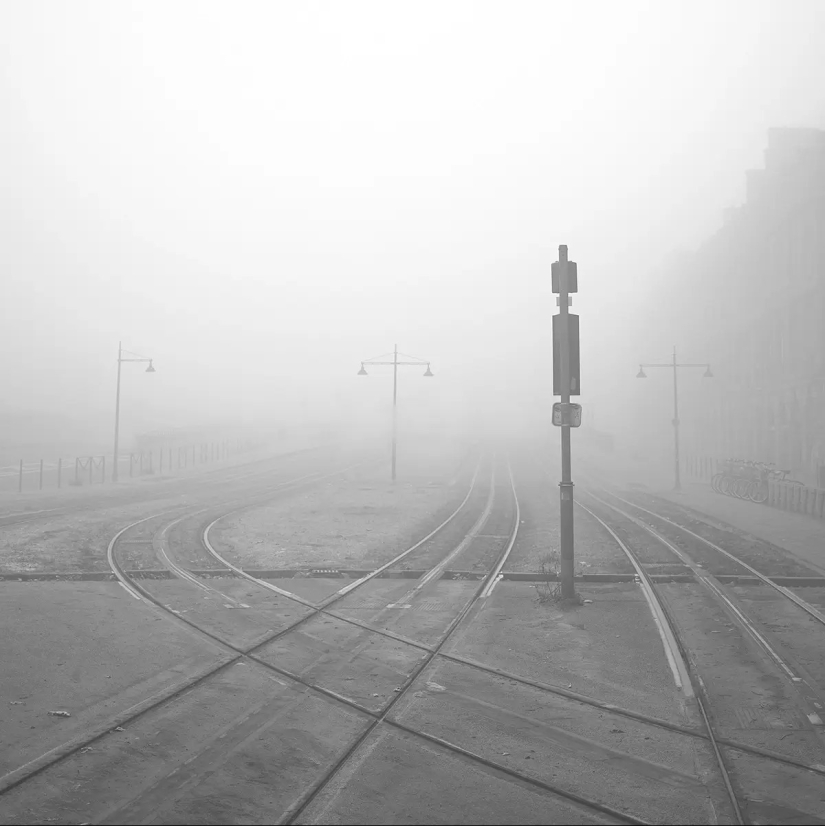
22. Laurent Spadotto (France)
For me, a photo is a mirror or a window, often both. This cathartic project was produced during the winter of 2021-2022. The ‘Fade’ series takes place in winter, in Bordeaux (France). The city’s stone bridge is at the center of this intimate journey. The bridge is the symbol of tormented souls faced with a decision: to take the plunge or to find the courage to cross it. To exist again. Free. Alive! I lived this experience as an initiatory journey, a solitary wandering in the silence of the city that can hardly be distinguished, a reflection of my fear of disappearing. Fade is the expression of a deeply intimate and sincere process, an introspective journey about the difficulties of (re)finding self-confidence and the energy to live in harmony with one’s desires. I can affirm it: The photographic act and the setting in images of my emotions during these long hours of walking in the cold saved my life. I crossed the bridge, then like the Genius of Liberty at the top of the column of the monument to the Girondins, I brandished the Palm of Victory and broke my chains. This series can be considered as a set of photograms (the smallest unit of time in a film). A puzzle of feelings and reflections that will be enriched by your interpretation and your story. This series has been regularly nominated in festivals and competitions. Several photos have been published in books and magazines. The series is regularly exhibited in galleries and other cultural venues. Fade is part of the diptych ‘Fade & Salvation’. Since September 2023, this project has been available in book form.
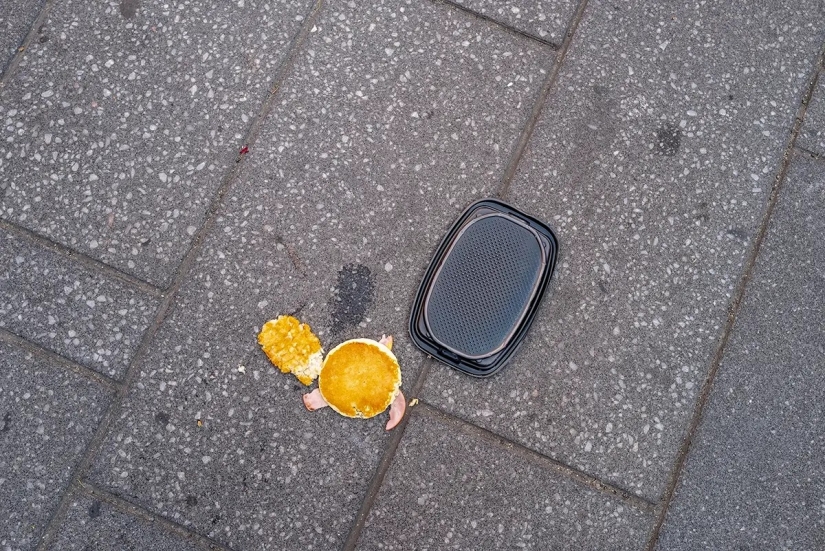
23. Joanna Madloch (Poland/USA)
“Urban Echoes is a photographic project that captures the often overlooked beauty of trash left on the streets. This project is not a critique or commentary on urban waste but a visual exploration of the accidental compositions that emerge in the most mundane of places. Through the lens of the photographer, these scraps of debris transform into captivating subjects, each frame a microcosm, rich with untold narratives. The project is an invitation to observe the city's heartbeat from a fresh perspective, discovering the aesthetic quality of what is conventionally dismissed as anesthetic. The images in Urban Echoes are canvases where light, texture, and color come together in serendipitous harmony.
The practice of pareidolia viewers into a deeper engagement with these images. It compels us to search for stories, faces, and figures in the chaos, to find familiarity in the foreign. This instinctive search for meaning is what Urban Echoes aims to evoke, encouraging a dialogue between the observer and the observed, between New York City and those who tread its paths.
Every photograph in this series is candid. The compositions are as authentic as the city itself, unarranged and unaltered. They are the products of chance encounters, a testament to the photographer's eye for detail and their ability to see beyond the superficial. The project is a celebration of spontaneity, a series of moments captured in perpetuity, each with its hidden narrative waiting to be discovered.
Urban Echoes does not merely document; it reveals. It asks us to pause, to look closer, and to appreciate the beauty in the overlooked nooks of our urban environment. The project offers a meditative reflection on our surroundings and the art that arises naturally within them. It is a reminder that even in a place as dynamic as New York City, there are still moments of quiet beauty to be found if only we are willing to look.
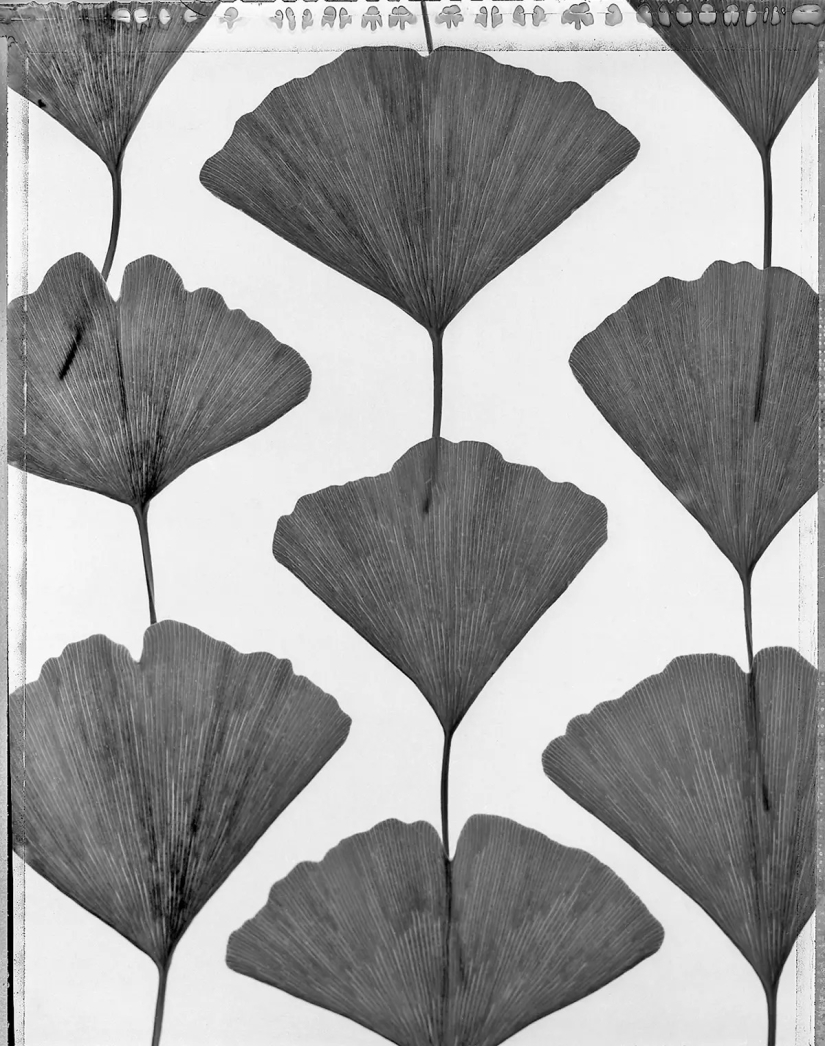
24. Liliane Schwab (Switzerland)
This series is about minimalism and simple patterns. The images aim to create a visual tranquility in this chaotic life. Your eyes can explore each button or screw and feel a sense of calm, evoked by the ordered patterns. I use common objects found in my home, stashed in cupboards and drawers. I am looking closely at commonly overlooked objects, whether new or previously used. These sometimes forgotten objects being put to use - as objects of my camera - are given a rediscovered purpose.
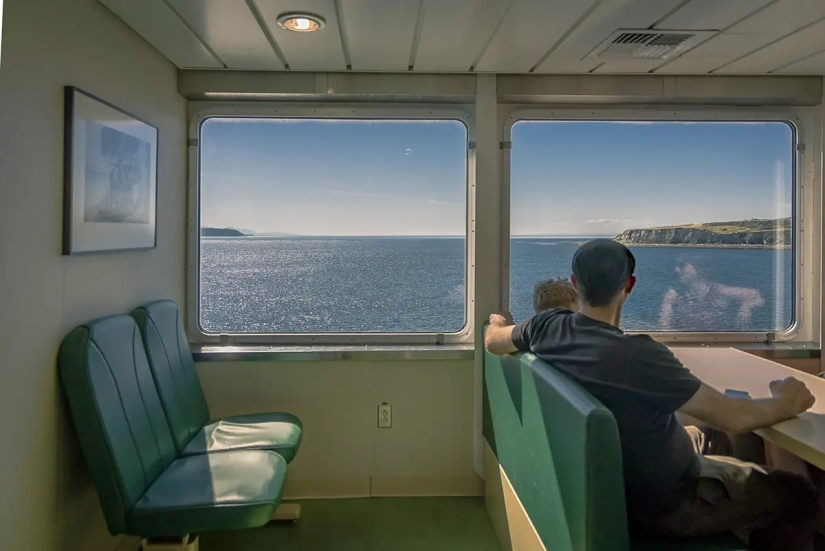
25. Yasmine Rafii (Iran/USA)
Candid scenes of travelers on Washington State ferries. The series originated while observing people riding the ferries to and from Whitney Island where I live.
Keywords: Shapes in photography | Photography | AAP Magazine | Magazine Showcases | Beauty of Forms
Post News ArticleRecent articles

It's high time to admit that this whole hipster idea has gone too far. The concept has become so popular that even restaurants have ...

There is a perception that people only use 10% of their brain potential. But the heroes of our review, apparently, found a way to ...
Related articles

Every parent of a baby younger kindergarten age knows that the most terrible sound in the house at the same time which causes ...

When 19-year-old Marilyn Monroe started to pose for Earl Moran in 1946, she still dreamed of becoming an actress. Moran's already ...

Even the stars of show business sometimes make mistakes by themselves and post it on the Internet is not a very good photo.. We are ...

New Year's is a time to surprise and delight loved ones not only with gifts but also with a unique presentation of the holiday ...